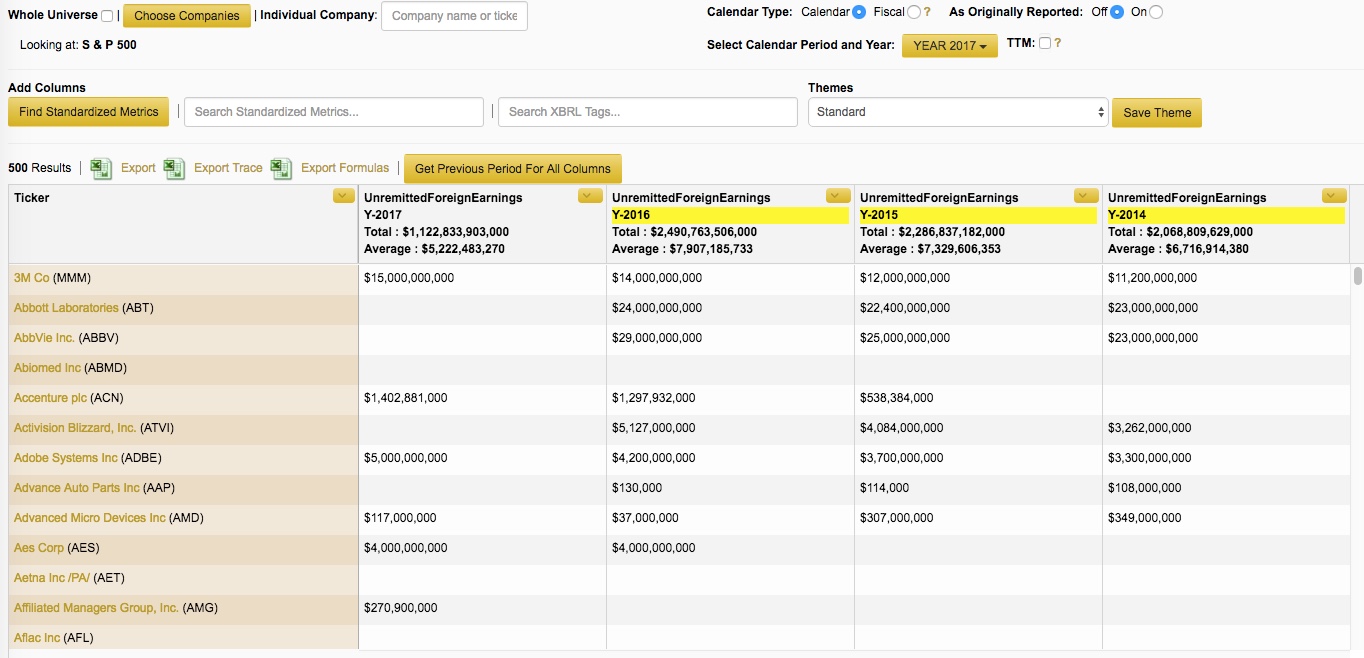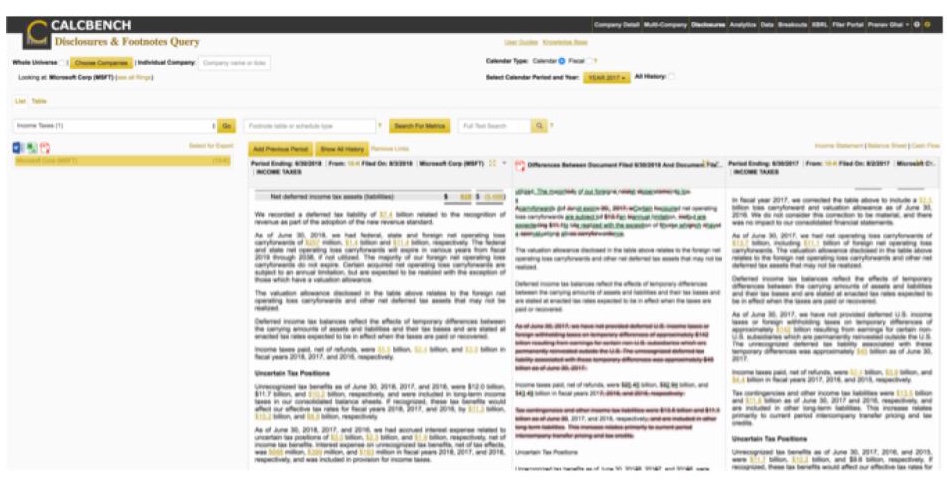We haven’t talked about last year’s tax reform for a while, so let’s revisit one significant item for corporate reporting: unremitted foreign earnings.
They’re still unremitted. More than that, they are unreported.
You may have seen that phenomenon explored in a recent Wall Street Journal article. Reporters examined the filings of 108 companies that account for roughly $2.7 trillion in unremitted foreign earnings, and found that those companies have brought home only about $143 billion so far — and more than $90 billion of that came from only two companies, Cisco Systems and Gilead Sciences. Everyone else in Corporate America is still keeping all those foreign earnings in foreign banks.
That wasn’t supposed to happen. Tax reform imposed a one-time “deemed repatriated earnings” tax on foreign profits, and eliminated most taxes on all future foreign earnings. Republicans said that would entice U.S. companies to bring all those foreign earnings home (roughly $4 trillion) and invest the dollars here.
Apparently Corporate America has decided differently. So what are companies doing with their cash? And how can Calcbench help you figure that out?
You can track companies’ unremitted foreign earnings either individually on our Company-in-Detail page; or compare them in bulk on our Multi-Company page. Just select the group of companies you want to study, and enter “Unremitted Foreign Earnings” in the Standardized Metrics search field. Presto, up come the results.
We Started Digging
For starters, Calcbench examined all the unremitted foreign earnings among the S&P 500, from 2014 through 2017. “UFE” was briskly rising in the first three years of that period, from an average $6.7 billion in 2014 to $7.9 billion in 2016.
Then UFE fell, to an average of $5.22 billion. Among all the S&P 500 together, total unremitted earnings plunged more than 50 percent, from $2.49 trillion to $1.12 trillion.
That’s good, right? Must mean that tax reform is working and companies are bringing home that overseas cash, yes?
Not so fast.
When we examined each company’s financial data individually, we found lots of companies that simply stopped reporting UFE. The fields they had populated with data in previous years were blank. See Figure 1, below.

Why might a company do that? You can research a company’s rationale for changing its disclosure by using our Interactive Disclosure viewer, to see what the company had to say about whatever issue is on your mind.
So we did that for UFE — and then found nothing. Companies just dropped all reference to UFE in their disclosures. Period.
Take Microsoft as an example, in Figure 2, below. The column on the far right is the 10-K tax footnote from fiscal year 2017; the column on the far left is same footnote in the fiscal 2018 10-K. That middle column, and specifically the paragraph circled in red, is the language Microsoft dropped from its 2017 disclosure compared to 2018.

Microsoft is only one example. We found scores of them throughout the S&P 500, including names such as General Electric, Nucor, Walmart, Abbott Labs, Coty, Cigna, and others. All of them disclosed unremitted foreign earnings in 2016 annual reports, but not in 2017.
We don’t yet know why. We’re not sure we will ever know why. We do know, however, that you can use Calcbench to determine whether the companies you follow fall into that category — and then you can ask that question yourself on the next earnings call or at the next investor day.